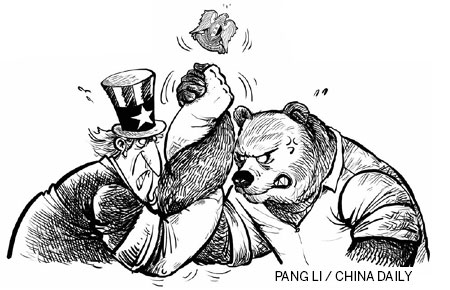G20 in the shadow of crises

Since the G20 first met five years ago to urgently deal with the global financial crisis, its meetings have tended to become more routine and yield diminishing results. The G20 meeting in St. Petersburg on Sept 5-6, however, will be different because of the international political context.
The abrupt halt to a scheduled US-Russia summit in Moscow and further escalation of the Syrian civil war after the alleged use of chemical weapons and the likely United States-led military intervention in Syria have pushed security issues to the top of the world leaders' agenda. The timing will turn the gathering of heads of state and government into a more important event.
Summits are as much about the personalities of summiteers as they are about the states they represent. US President Barack Obama is known for his trademark impersonal style of dealing with other countries' leaders. But his recent public comments on Russian President Vladimir Putin suggest they don't enjoy a cordial relationship. The cancellation of the US-Russia summit, which would have preceded the G20 meeting, marks the end of a collaborative phase in Russo-American relations.
An attack against Syria will be a watershed. There will be no return to the Cold War, to be sure, but the cooperation between Moscow and Washington is likely to become more limited, and bilateral ties will become more contentious than consensual.
While Putin and Obama may share a few words in St. Petersburg, no formal meeting between them has been planned. Putin, however, has set aside time for a meeting with Chinese President Xi Jinping, who will be on his second visit to Russia since becoming China's top leader in March.
Chinese and Russian leaders will meet again a week later at the Shanghai Cooperation Organization's summit in Bishkek, Kyrgyzstan. With expanding economic relations and two sets of joint army and naval exercises between the PLA and the Russian armed forces, Sino-Russian interaction is becoming more intense. And a direct US military action against Syria (and what it portends for Iran) is likely to intensify Moscow-Beijing dialogue on regional security issues.
The disparate nature of Russia's relations with the US and China illustrates its complex position in the world. It is a member of both the G8 - and will host its summit next year - and BRICS. Within the former, Russia has always been the odd country out - initially because its GDP was too small, and later because the other G8 members saw its political system as non-democratic, its economy as insufficiently developed, and its foreign policy as too independent.





















